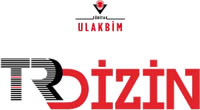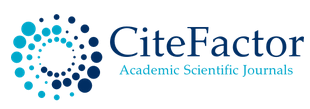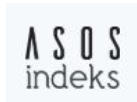Comparison of 2018 and 2024 Secondary School Science Curriculums in Terms of Scientific Reasoning Skills.
DOI:
https://doi.org/10.15659/jancr.v8i3.199Keywords:
Scientific reasoning skills, science curriculum, acquisition, learning outcomes, process componentsAbstract
Bu çalışmanın amacı, 2018 ve 2024 ortaokul fen bilimleri öğretim programlarını bilimsel muhakeme becerileri açısından karşılaştırmaktır. İncelenen bilimsel muhakeme becerileri korelasyonel düşünme becerisi, değişkenlerin kontrolü, hipotetik düşünme becerisi, orantısal düşünme becerisi ve olasılıklı düşünme becerisidir. Bu amaçla 2018 ortaokul fen bilimleri öğretim programı kazanımları ile 2024 ortaokul fen bilimleri öğretim programı öğrenme çıktıları ve süreç bileşenleri içerik analizi yapılarak karşılaştırılmıştır. Karşılaştırma sonucunda hipotetik düşünme becerisinin aşamalarından birisi olan hipotez oluşturma ilgili kazanımlara 2018 öğretim programında yer verilmediği 2024 öğretim programında yer verildiği görülmüştür. Ancak hipotetik düşünme becerisinin diğer aşamaları olan hipotezlerin test edilmesi ve hipotezlerle ilgili karar verme becerileri ile ilgili kazanımlara her iki programda da yer verilmediği görülmüştür. 2018 fen bilimleri öğretim programında orantısal düşünme becerilerinin kullanmayı gerektiren kazanımlar olduğu görülmüştür. Orantısal düşünme becerileri 2024 fen bilimleri öğretim programında ise öğrenme çıktıları ve süreç bileşenlerinde “model oluşturma” ifadelerinin bazılarıyla ilişkilendirilmiştir. Olasılıklı düşünme becerileri ile ilgili kazanımlara, 2018 öğretim programında deneylerin sonuçlarını tahmin etme şeklinde yer verilirken 2024 öğretim programında deneylerin sonuçlarını tahmin etmenin yanı sıra sosyobilimsel konularla ilgili tahmin yürütme şeklinde yer verilmiştir.
References
Açıkgül, K. (2021) Developing a two-tier proportional reasoning skill test: Validity and reliability studies. International Journal of Assessment Tools in Education, 8(2), 357-375. https://doi:10.21449/ijate.909316
Aktan, M. B., Kaynak, S., Abdüsselam, Z., & Ardoğan, E. (2019). Güncel fen öğretim programları ve ders kitaplarında model ve modelleme kavramlarının analizi. Cumhuriyet Uluslararası Eğitim Dergisi, 8(1), 44-69.
Aktaş, S. (2016). Ortaokul 6, 7 ve 8. sınıf fen bilimleri dersi öğretim programlarının öğrencilerin bilimsel süreç becerileri, duygusal zekâları, bilişsel stilleri ve akademik başarılarına etkisi Yayımlanmamış yüksek lisans tezi. Mustafa Kemal Üniversitesi.
Altay, E. (2020). İlköğretim fen bilimleri öğretim programı, ders kitapları ve öğretmenlerin model kullanım yaklaşımlarının araştırılması. Yayımlanmamış Yüksek Lisans Tezi. Zonguldak Bülent Ecevit Üniversitesi.
Altun, M. (2010). İlköğretim 2. kademe (6, 7, 8. sınıflarda) matematik öğretimi. İstanbul: Alfa Aktüel.
Balcı, R.B. (2024). Ortaokul 5, 6, 7, 8. sınıf fen bilimleri ders kitaplarının alana özgü beceriler bakımından incelenmesi. Yayımlanmamış yüksek lisans tezi. Balıkesir Üniversitesi.
Ball, D. L., & Cohen, D. K. (1996). Reform by the book: What is – or might be – the role of curriculum materials in teacher learning and instructional reform? Educational Researcher, 25(9), 6–14.
Başar, T. (2021). 2018 Fen bilimleri dersi öğretim programında yer alan kazanımların bilimsel süreç becerileri açısından analizi. Erzincan Üniversitesi Eğitim Fakültesi Dergisi, 23(1), 218-235.
Baxter, G. P., & Junker, B. A. (2001, April). Designing cognitive-developmental assessments: A case study in proportional reasoning. Seattle, Washington: Annual Meeting of the National Council for Measurement in Education
Cai, J. (2010). Evaluation of mathematics education programs. In E. Baker, B. McGraw, & P. Peterson (Eds.), International encyclopedia of education, (pp. 653–659). Oxford: Elsevier.
Cai, J., Wang, N., Moyer, J. C., Wang, C., & Nie, B. (2011). Longitudinal investigation of the curriculum effect: An analysis of student learning outcomes from the LieCal Project. International Journal of Educational Research, 50(2), 117–136.
Cai, J., & Howson, A. G. (2013). Toward an international mathematics curriculum. In M. A. Clements, A. Bishop, C. Keitel, J. Kilpatrick, & K.S. F. Leung (Eds.). Third international handbook of mathematics education research (pp. 949-978). Dordrecht: Springer.
Campbell-Phillips, S. (2020). Education and curriculum reform: The impact they have on learning. Budapest International Research and Critics in Linguistics and Education (BirLE) Journal, 3(2), 1074–1082.
Clouse, S. (2017). Scientifc thinking is not critical thinking. https://medium.com/extra-extra/scientifc-think ing-is-not-critical-thinking-b1ea9ebd8b31
Çeken, R. (2022). Fen bilimleri ve matematik dersleri öğretim programlarında oran ve orantı kavramlarının disiplinler arası ilişkilendirmeler bakımından incelenmesi. Eğitim Fakültesi Dergisi, 8(2), 121-143.
Çepni, S. (2008). Kuramdan uygulamaya fen ve teknoloji öğretimi. Ankara: Pegem.
Çolak, S.N. (2023). 2018 fen bilimleri dersi öğretim programına göre yedinci sınıf fen bilimleri ders kitaplarındaki etkinliklerin bilimsel süreç becerileri açısından değerlendirilmesi. Yayımlanmamıs yüksek lisans tezi. Bursa Uludağ Üniversitesi.
Demir, R. (2022). 6. sınıf fen bilimleri ders kitapları ve eğitim bilişim ağı’ndaki etkinliklerin ve oyunların bilimsel süreç becerileri açısından incelenmesi. Yayımlanmamıs yüksek lisans tezi. Necmettin Erbakan Üniversitesi.
Dewey, J. (2002). Logik: Die theorie der forschung [Logic: The theory of inquiry] (1st ed.). Suhrkamp: Frankfurt am Main
Dole, S., Clarke, D.M., Wright, T., & Hilton, G. (2012). Students' proportional reasoning in mathematics and science. In T.S. Tso (Eds.), Proceedings of the 36th conference of the ınternational group for the psychology of mathematics education, Vol. 2, (pp.195-202). Taipei, Taiwan: PME.
Dole, S., Hilton, A., & Hilton, G. (2015). Proportional reasoning as essential numeracy. Proceedings of the 38th annual conference of the mathematics education research group of Australasia, 189 – 196.
Dökme, İ. (2019). Bilimsel muhakeme becerileri ile düşünme sanatı. Ankara: Anı
Dökme, İ. (2021). Yeni nesil sorularla fen eğitiminde beceriler. Ankara: Akademisyen
Düşkün, İ. & Ünal, İ. (2015). Modelle öğretim yönteminin fen eğitimindeki yeri ve önemi. Mehmet Akif Ersoy Üniversitesi Eğitim Bilimleri Enstitüsü Dergisi, 4 (6), 1-18.
Etzler, F.M., & Madden, M. (2014). The test of logical thinking as a predictor of first-year pharmacy students’ performance in required first-year courses. American Journal of Pharmaceutical Education, 78(6), 1-4.
García Carmona, A. (2020). From inquiry-based science education to the approach based on scientifc practices. Science & Education, 29(2), 443–463. https://doi.org/10.1007/s11191-020-00108-8
Han, J. (2013). Scientific reasoning: Research, development, and assessment [Doctoral dissertation]. The Ohio State University, Ohio.
Harlen, W. (2014). Helping children’s development of inquiry skills. Inquiry in Primary Science Education, 1(1), 5–19.
Hotulainen, R., & Telivuo, J. (2015). Epistemological beliefs and scientific reasoning in finnish academic upper secondary education. Kasvatus & Aika, 9(1), 92-106. http://www.kasvatus-ja-aika.fi/site/?lan=1&page_id=680
Hrouzková, T., & Richterek, L. (2021). Lawson classroom test of scientific reasoning at entrance university level. Proceedings of the 4th ınternational Baltic symposium on science and technology education, (pp. 74-85). Šiauliai, Lithuania: Vilnius University
Jirout, J. J. (2020). Supporting early scientifc thinking through curiosity. Frontiers in Psychology, 11, 1-7. https://doi.org/10.3389/fpsyg.2020.01717
Jones, G.A., Thornton, C.A., Langrall, C.W. & Tarr, J.E. (1999). Understanding students‟ probablistic reasoning. Developing Mathematical Reasoning in Grades K-12, 146-156.
Kaplan, A., İşleyen, T. & Öztürk, M. (2011). 6. sınıf oran orantı konusundaki kavram yanılgıları. Kastamonu Eğitim Dergisi, 19(3), 953–968.
Kaplan, A., Öztürk, M. & Ferahoğlu, N. S. (2015). A mixed method of the research: attitudes towards mathematics and visual arts courses by correlation. International Journal of Innovation and Learning, 17(4), 529-539. https://doi:10.1504/IJIL.2015.069614
Khan, K.A., & Rana, R.A. (2021). Effect of higher order thinking ınstructional model on scientific reasoning of grade VIII students. Bulletin of Education and Research, 43(1), 77-92.
Klahr, D., Zimmerman, C., & Matlen, B. J. (2019). Improving students’ scientifc thinking. In J. Dunlosky & K. A. Rawson (Eds.). The Cambridge handbook of cognition and education (pp. 67–99). Cambridge University.
Kocakülah, M. S., Turan, A., & Kocakülah, A. (2020). Fen ve teknoloji dersi ile fen bilimleri dersi öğretim programlarının öğrencilerin araştırma becerilerine etkilerinin karşılaştırılması. Akdeniz Eğitim Araştırmaları Dergisi, 14(34), 633-661.
Koyunlu Ünlü, Z. & Dökme, İ. (2019). 2018 fen bilimleri dersi öğretim programındaki kazanımların bilimsel muhakeme becerilerini geliştirmeye uygunluk durumlarının incelenmesi. 7. Uluslararası Eğitim Programları ve Öğretim Kongresi, Ankara, 9-12 Ekim 2019, 67-71
Kuhn, D., & Franklin, S. (2006). The second decade: What develops and how. In W. Damon & R. M. Lerner (Eds.), Handbook of child psychology (6th ed., pp. 953-993). New York: Wiley
Lamon, S. J. (2012). Teaching fractions and ratios for understanding essential content knowledge and instructional strategies for teachers. Routledge/Taylor & Francis Group
Lanius, C. S., & Williams, S. E. (2003). Proportionality: A unifying theme for the middle grades. Mathematics Teaching in the Middle School, 8(8), 392-396
Lawson, A.E. (1985). A review of research on formal reasoning a science teaching. Journal of Research in Science Teaching, 22(7), 569-617.
Lawson, A.E. (1995). Science teaching and the development of thinking. Watsworth Press.
Lawson, A. E. (2004). The nature and development of scientific reasoning: A synthetic view. International Journal of Science and Mathematics Education, 2(3), 307-338. https://doi.org/10.1007/ s10763-004-3224-2
Lazonder, A.W., & Janssen, N. (2021). Development and initial validation of a performance-based scientific reasoning test for children. Studies in Educational Evaluation, 68(1), 1-20
Lesh , R.A., & Doerr, H. (2003). Foundations of model and modeling perspectives on mathematic teaching and learning. In R.A. Lesh and H. Doerr (Eds.), Beyond Constructivism: A models and modeling perspectives on mathematics teaching, learning, and problem solving. Mahwah, NJ: Lawrance Erlbaum.
Lesh, R., & Zawojewski, J. S. (2007). Problem solving and modeling. In F. Lester (Ed.), Second handbook of research on mathematics teaching and learning (pp. 763–804). Greenwich, CT: Infor mation Age Publishing.
Lim, K. (2009). Burning the candle at just one end: Using nonproportional examples helps students determine when proportional strategies apply. Mathematics Teaching in the Middle School, 14(8), 492–500. https://doi.org/10.5951/MTMS.14.8.0492
MacGillivray, H.L. (2018). Real probability and probabilistic thinking. Teaching Statistics, 40, 37-39.
Mercado, R. L (t.y.). Supporting probabilistic thinking: a program for teachers of 11- and 12-year-olds.https://capstone.extension.harvard.edu/files/capstone/files/mercado_-_final_report.pdf
Millî Eğitim Bakanlığı (MEB), (2018a). Fen Bilimleri Dersi (4, 5, 6, 7 ve 8. Sınıflar) Öğretim Programı.
Millî Eğitim Bakanlığı (MEB), (2024a). Fen Bilimleri Dersi (4, 5, 6, 7 ve 8. Sınıflar) Öğretim Programı.
Millî Eğitim Bakanlığı (MEB), (2018b). Ortaokul Matematik Dersi (4, 5, 6, 7 ve 8. Sınıflar) Öğretim Programı.
Millî Eğitim Bakanlığı (MEB), (2024b). Ortaokul Matematik Dersi (4, 5, 6, 7 ve 8. Sınıflar) Öğretim Programı.
Morris, B. J.,Croker, S., Masnick, A. M. &Zimmerman, C. (2012). The emergence of scientific reasoning. In H. Kloos, B. J. Morris and J. L. Amaral (Eds.). Current topics in children's learning and cognition, (pp. 61-82). https://doi.org/ 10.5772/53885
National Research Council (NRC), (2004). Engaging schools: fostering high school students’ motivation to learn. Washington, DC: The National Academies.
National Research Council (NRC), (2012). A framework for K-12 science education: practices, crosscutting concepts, and core ideas. Washington, DC: The National Academies
Özdeniz, Y., Aktamış, H., & Bildiren, A. (2023). The effect of differentiated science module application on the scientific reasoning and scientific process skills of gifted students in a blended learning environment. International Journal of Science Education, 45, 827- 849.
Özkan, U.B. (2021). Eğitim bilimleri araştırmaları için doküman inceleme yöntemi (4.Baskı). Ankara: Pegem.
Özkan, U. B. (2023). Doküman inceleme yönteminde geçerlik ve güvenirlik: Eğitim bilimleri araştırmaları bağlamında kuramsal bir inceleme. Dokuz Eylül Üniversitesi Buca Eğitim Fakültesi Dergisi, 56, 832-848. https://doi.org/10.53444/deubefd.1258867
Pelamonia, J., Mahananingtyas, E., & Johannes, N.Y. (2017). Empowerment scientific reasoning in science learning for junior high school students in ambon city. Proceeding International Seminar on Education, 1(1), 104-113.
Pelen, M. S. (2014). 6. sınıf öğrencilerinin orantısal akıl yürütme becerilerinin problemlerin sınıflanması ve sayısal yapılarına göre incelenmesi. Yayımlanmamıs yüksek lisans tezi. Çukurova Üniversitesi.
Ramig, J. E., Bailer, J., & Ramsey, M. J. (1995). Teaching science process skills. Good Apple.
Ross, J.A., & Cousins, J.B. (1993). Enhancing secondary school students’ acquisition of correlational reasoning skills. Research in Science & Technological Education, 11, 191-205.
Schmidt, W. H., McKnight, C. C., Houang, R. T., Wang, H., Wiley, D. E., Cogan, L. S., & Wolfe, R. G. (2002). Why schools matter: A cross-national comparison of curriculum and learning. CA: Jossey-Bass.
Schwichow, M., Croker, S., Zimmerman, C., Höffler, T., & Härtig, H. (2016). Teaching the control-of-variables strategy: A meta-analysis. Developmental Review, 39, 37–63. https://doi.org/10.1016/j.dr.2015.12.001
Senk, S. L., & Thompson, D. R. (Eds.). (2003). Standards-based school mathematics curricula: What are they? What do students learn? Mahwah, NJ: Lawrence Erlbaum Associates
Stammen, A., Malone, K.L., & Irving, K.E. (2018). Effects of modeling ınstruction professional development on biology teachers’ scientific reasoning skills. Education Sciences, 8(3), 1-19. https://doi.org/ 10.3390/educsci8030119
Stein, M. K., Remillard, J. T., & Smith, M. S. (2007). How curriculum influences student learning. In F. K. Lester (Eds.). Second handbook of research on mathematics teaching and learning (pp. 319–369). Charlotte, NC: Information Age Publishing
Şen, K.N. (2019). Beşinci sınıf öğrencilerinin bilimsel süreç becerileri ve öz-yeterlik inançlarının belirlenmesi. Yayımlanmamıs yüksek lisans tezi. Bartın Üniversitesi.
Tavşancıl, E. & Aslan, E. A. (2001). Sözel, yazılı ve diğer materyaller için içerik analizi ve uygulama örnekleri. İstanbul: Epsilon.
Toluk Uçar, Z. & Bozkuş, F. (2016). İlkokul ve ortaokul öğrencilerinin orantısal durumları orantısal olmayan durumlardan ayırt edebilme becerileri. Ahi Evran Üniversitesi Kırşehir Eğitim Fakültesi Dergisi, 17(3), 281-299.
United Nations Educational, Scientific and Cultural Organization (UNESCO), (2010). Current challenges in basic science education. https://unesdoc.unesco.org/ark:/48223/pf0000191425
Van de Walle, J. A., Karp, K. S., & Bay-Williams, J. M. (2010). Elementary and middle school mathematics: Teaching developmentally (7th ed.). Boston: Allyn & Bacon.
Woolley, J.S., Deal, A.M., Green, J., Hathenbruck, F., Kurtz, S.A., Park, T.K.H., … Jensen, J.L. (2018). Undergraduate students demonstrate common false scientific reasoning strategies. Thinking Skills and Creativity, 27(1), 101-113.
Yıldız, N. (2023). Öğrencilerin bilimsel muhakeme becerilerine ilişkin performanslarının çeşitli değişkenler açısından incelenmesi. Yayımlanmamış yüksek lisans tezi. Gazi Üniversitesi.
Yüzüak, A. V., & Dökme, İ. (2019). Fen bilgisi ve sınıf öğretmeni adaylarının mantıksal düşünme düzeyleri. Hacettepe Üniversitesi Eğitim Fakültesi Dergisi, 34(3), 586-601.
Zhou, S., Han, J., Koenig, K., Raplinger, A., Pi, Y., Li, D.,…Bao, L. (2016). Assessment of scientific reasoning: The effects of task context, data and design on student reasoning in control of variables. Thinking Skills and Creativity, 19, 175–187. https://doi.org/10.1016/j.tsc.2015.11.004
Zimmerman, C., & Klahr, D. (2018). Development of scientific thinking. Stevens' handbook of experimental psychology and cognitive neuroscience, 4, 1-25. https://doi.org/10.1002/9781119170174.epcn407
Zulkipli, Z. A. (2020). Identifying scientific reasoning skills of science education students. Asian J. Univ. Educ. 16, 275–280. https://doi: 10.24191/ajue.v16i3.10311
Downloads
Published
How to Cite
Issue
Section
License
Copyright (c) 2024 Journal of Anatolian Cultural Research (JANCR)

This work is licensed under a Creative Commons Attribution-NonCommercial 4.0 International License.










